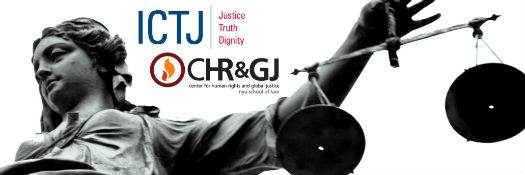 At the end of last year, leading activists, experts, and thinkers gathered for the ninth Emilio Mignone Lecture, a discussion about whether the tools of transitional justice have a place in the US. Darren Walker, President of the Ford Foundation, and Sherrilyn Ifill, President and Director-Counsel of the NAACP Legal Defense Fund, joined moderator David Tolbert, President of the International Center for Transitional Justice (ICTJ) at the time, in conversation.
At the end of last year, leading activists, experts, and thinkers gathered for the ninth Emilio Mignone Lecture, a discussion about whether the tools of transitional justice have a place in the US. Darren Walker, President of the Ford Foundation, and Sherrilyn Ifill, President and Director-Counsel of the NAACP Legal Defense Fund, joined moderator David Tolbert, President of the International Center for Transitional Justice (ICTJ) at the time, in conversation.
The lecture, titled “Reckoning with Racial Injustice in the United States,” was co-hosted by ICTJ and the Center for Human Rights and Global Justice (CHRGJ) at New York University (NYU) School of Law.
Conversation began with introductions from NYU professor Meg Satterthwaite and ICTJ Executive Director Fernando Travesi. Meg Satterthwaite stressed CHRGJ’s commitment to holding the United States accountable to its human rights obligations while Fernando Travesi reflected on the increasing relevance of the tools of transitional justice in the US.
Darren Walker, Sherrilyn Ifill, and David Tolbert then opened discussion.
Discussion centered on the urgent need for a reckoning with the truth. “You have to be able to confront the truth in order to move forward,” said Sherrilyn Ifill. “You need ways of informing the public of the uncontested nature of racial mythology in the US.” She also acknowledged that efforts to attack the concept of truth damage the possibility of justice, lamenting the need for video evidence of violence to start a conversation about racism. She also added: “Truth telling becomes all the more difficult when facts and truth are challenged as ‘fake news’.”
Ifill and Walker both stressed that poisonous mythologies persist, noting that some people continue to argue that persistent systemic inequality is somehow inevitable or natural, a belief they say is rooted in deliberate ignorance of the past.
To unpack these mythologies, Darren Walker emphasized the importance of local efforts to confront the truth, particularly in schools. “Schoolbooks that teach slavery use terminology that softens the blow of what actually happened.” Public education is therefore essential, he argued, using the counter example of Germany, where schools are unambiguous about Nazi crimes. “There is no lack of clarity in Germany,” he said. “We must fight [for education about injustice] at both the local and federal level because the levers we need to pull are in both places.” David Tolbert echoed this sentiment: “We cannot forget value of local struggles & focus only on presidential politics. Change happens when progressive forces work at local levels.”
By the same token, the speakers urged policy change and investment as a means to address these systemic issues, which would benefit society as a whole.
To watch the full conversation, click here.
